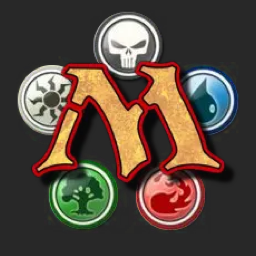Made a fun thought experiment and sorted all my EDH decks by archetype so it’s easier to chose a small subset to take on FNM without ending up stuck with the same archetype.
This is a cool idea, but I’m having trouble reading your categories upside down. Looks like you have Aggro vs Control on one axis, and Value/Midrange versus Uninteractive(?) on the other.
I think that alone is interesting, as I wouldn’t have considered any of those as categories to sort by. Outside of sorting by bracket, I usually don’t think much beyond that.
Usually people recognize aggro-control-combo triad.
I don’t have infinite combos, but my Kess can do billions of damage from sorceries basically out of almost empty board. Hence, I’ve named that Uniniteractive. Essentially decks that don’t look like they do much but you are on a clock to kill them before they do that.
Midrange is generally a space between aggro and control, which I think makes sense in 1v1, but I think is incorrect for EDH.
Midrange in EDH have to be some absolute value houses so they could survive being interacted by 2-3 players, going exponential on resources.
Control decks feature increased amount of interaction and enough value engines to be able to cast interaction and not to run out of fuel. But the wincons aren’t as strong as in midrange variants, control relies on breaking opponents value engines first.
Aggro is what you can expect from the name, put a tight timeclock on their relaxed value piles.
I need to mention that it’s hardly a 2d space. Jodah, realistically, is in midrange/uninteractive. But the rest fits nicely into categories or into spaces directly between.
Sounds like a nice thought experiment, I tend to go on slower decks allways. Perhaps I could do this to fill the gaps on my decks collection. How fast do you think an aggro deck should be killing someone?
I’m at bracket 2-3, I’d say if you can kill a single player at turn5 with a great starting hand and luck, that’s fast.
But it all depends on what your deck do, my most aggressive deck is doing damage to everyone (me too) each turn, stacking symmetric burn effects. It doesn’t kill at early turns but it lowers everyone’s HP low enough not to feel safe, denying them setup time and force to act, just to goad their whole board with my Kardur, and when only one opponent remains, do some fast finish, like Mob Rule.
Again, you might go slower if you have something nice to protect you from the most likely negative scenario. Say, Danitha theoretically could kill t4, but practically that’s gonna happen way slower with an average luck, BUT lifelink vigilance is gonna keep your hitpoints high enough to have time - just get enough protective gear so you don’t lose her too often.
You can see all the decks mentioned here.
This is awesome, thank you for posting the deck lists!
@Mika @Phantaminum Speed is funny.
Creative Energy can kill the table on turn 5 (I’ve seen it happen, but they misplayed and only threatened the win turn 6 and we had a wrath).
Also getting a very early win when other decks unknowingly accelerate your win also skews numbers.
I tend to play with my friends at home so we have like your own slower meta. I wanted to know your opinion because I have been wanting some aggressive deck but it seems really fast to kill someone at T5, I guess some Voltron can do that on my playgroup (Bruenor with colossus hammer and something else). But I was asking more for a game win, assuming no one can stop you and you don’t have a god’s sent first hand. In which turn you think your aggressive deck will win on average?
My decks tend to win by combat damage, but they are more value oriented.
Edit: Is really nice to see people discussing decks and making posts here!
That mostly depends on what other players do to counter you.
Kardur games go fast and you can expect them to end in ~7-9 turns. You even win some of them. Games where you lose are also speed up by a lot.
Jirina / Danitha, even if you can kill a single opponent fast you have to deal with 3. Most likely board wipe would happen, so add several turns per wipe for recovery, assuming you haven’t run out of steam. But even with 1 wipe, that could go over 10 turns easy.
Best thing here is that you can remove the most problematic players first. It’s often not the players with early creatures btw, but those who just silently ramp or set up otherwise.



